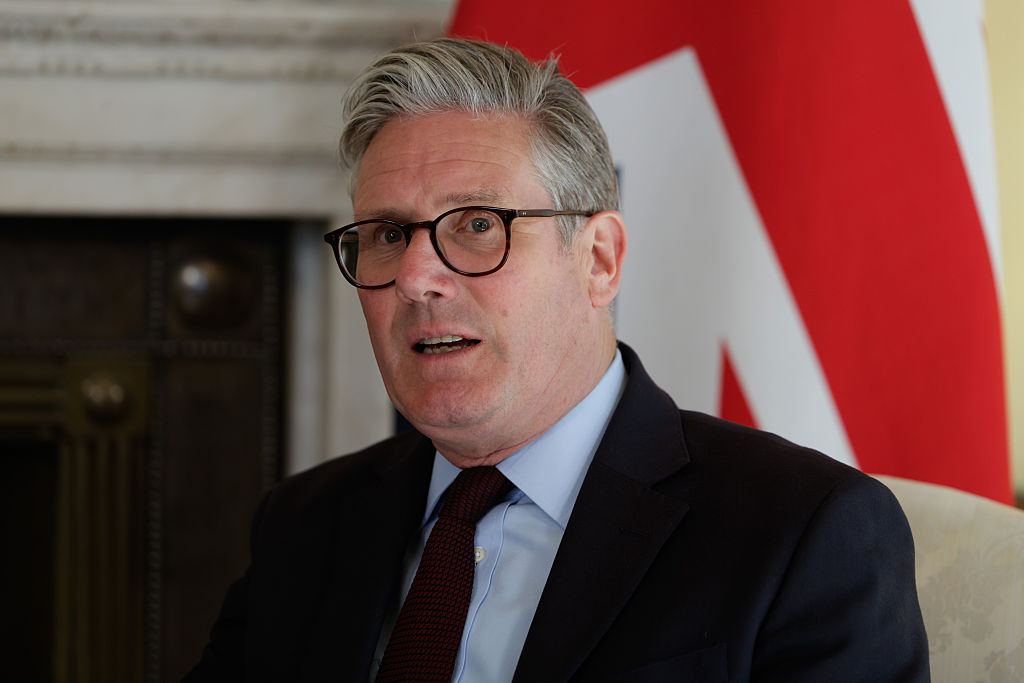
Get the latest financial news, insights and expert analysis from our award-winning MoneyWeek team, to help you understand what really matters when it comes to your finances.
You are now subscribed
Your newsletter sign-up was successful
Want to add more newsletters?

Twice daily
MoneyWeek
Get the latest financial news, insights and expert analysis from our award-winning MoneyWeek team, to help you understand what really matters when it comes to your finances.

Four times a week
Look After My Bills
Sign up to our free money-saving newsletter, filled with the latest news and expert advice to help you find the best tips and deals for managing your bills. Start saving today!
Having fought an expensive civil war against the barons, Henry III was short of money. Jealous of the lucrative revenues earned by the City of London Corporation, which had from London Bridge sided with the barons in the civil war, Henry seized control of the bridge in 1269 and handed its administration to his wife, Eleanor of Provence. The money raised from tolls was supposed to pay for maintenance and repair, but instead was squandered. The bridge fell into disrepair and, in the winter of 1281-1282, partially collapsed. Henry’s son, Edward I, handed the bridge (then the only one in London) back to the City of London Corporation, which has been responsible for the City’s bridges ever since.
So successful has this been that the City Bridge Foundation has been able not only to maintain the City’s five bridges without tolls, but also donates £30 million a year to London charities. Meanwhile, Hammersmith Bridge, the responsibility of the Borough of Hammersmith & Fulham, has been closed to motor traffic for five years as the council can neither afford repairs nor sees the necessity for them, supposedly because they think it benefits those south of the river more than those north of it.
London Bridge’s period of nationalisation is immortalised in the humorous song London Bridge is falling down, the full version of which disparages Queen Eleanor. It set a precedent for future nationalisations: cream off the revenue for other purposes, hand management to inexperienced cronies, mismanage the assets and underinvest. Such a strategy has proved perennially popular with governments.
MoneyWeek
Subscribe to MoneyWeek today and get your first six magazine issues absolutely FREE

Sign up to Money Morning
Don't miss the latest investment and personal finances news, market analysis, plus money-saving tips with our free twice-daily newsletter
Don't miss the latest investment and personal finances news, market analysis, plus money-saving tips with our free twice-daily newsletter
Hence Henry VIII’s dissolution of the monasteries, tearing up England’s rudimentary welfare system, which provided education, medical attention and the relief of destitution, so that its assets could be handed to the crown and Henry’s favoured sycophants. In the last century, nationalisation was used to prop up failing industries, such as coal mining, steel and railways, or squeeze revenue from monopoly utilities, such as electricity and gas. In each case, the precedent of Henry III was followed; instead of propping up these businesses, their decline was accelerated at vast cost to the Exchequer.
Thatcher’s unfinished revolution
We may have thought that this catalogue of financial disaster had ended with Margaret Thatcher’s privatisation programme in the 1980s, but the political appeal of grabbing control of failing businesses has proved enduring. Governments appear to believe that market failure is not an indication of a doomed business, but of bad or venal management. Surely the government can do better?
Hence the current government’s enthusiasm for nationalising the Scunthorpe steel works, which met with approval across the political spectrum. This is nearly always a warning sign; actions which are universally approved of indicate a lack of scrutiny. The politicians speak grandly of the strategic importance of maintaining a UK capacity to manufacture steel as if a time might come when Britain cannot rely on imports.
However, steel cannot be produced without a plentiful supply of coking coal and iron ore, bulk commodities that are expensive to transport long distances. Britain had both in the past, but now has neither; a proposal to open a mine producing coking coal in West Cumbria was turned down by the government. Instead, both have to be imported, which wrecks the strategic case for the production of steel.
In any case, what are the circumstances in which the UK could not rely on imports of coal and iron ore? A return of the conditions of the last war, perhaps, but that possibility is well beyond remote. Meanwhile, the recently deposed Chinese owners of Scunthorpe claim to have been losing £700,000 a day. History says that, under British government control, those losses will multiply, to be paid for by British taxpayers in general.
America, with domestic production of both iron ore and coking coal (and with more accessible from Canada), can make a coherent case for maintaining domestic steel production, even if it can be imported more cheaply. Without a domestic supply of at least one of the two basic raw materials, and with an ideological objection to cheap energy, the UK is nowhere near that position.
Remember British Rail
Moreover, the government’s appetite for nationalisation does not end with steel. The government grabbed control of the rail network more than 20 years ago, with costs escalating rapidly thereafter, but it now seeks to control the operating companies. It seems that people have forgotten the disastrous record of the old British Rail for passengers, businesses and taxpayers.
The problems with Thames Water (and other water utilities) are the result of excess debt, constrained pricing and under-investment. Ofwat, the sector’s regulator, believed that keeping consumer charges down was more important than long-term investment and that replacing equity with debt would reduce the cost of capital of the industry, enabling lower prices.
Nationalisation is no solution; it will just allow bad news to be buried. Some lessons of history, it seems, will never be learned.
This article was first published in MoneyWeek's magazine. Enjoy exclusive early access to news, opinion and analysis from our team of financial experts with a MoneyWeek subscription.
Get the latest financial news, insights and expert analysis from our award-winning MoneyWeek team, to help you understand what really matters when it comes to your finances.

Max has an Economics degree from the University of Cambridge and is a chartered accountant. He worked at Investec Asset Management for 12 years, managing multi-asset funds investing in internally and externally managed funds, including investment trusts. This included a fund of investment trusts which grew to £120m+. Max has managed ten investment trusts (winning many awards) and sat on the boards of three trusts – two directorships are still active.
After 39 years in financial services, including 30 as a professional fund manager, Max took semi-retirement in 2017. Max has been a MoneyWeek columnist since 2016 writing about investment funds and more generally on markets online, plus occasional opinion pieces. He also writes for the Investment Trust Handbook each year and has contributed to The Daily Telegraph and other publications. See here for details of current investments held by Max.
-
 Can mining stocks deliver golden gains?
Can mining stocks deliver golden gains?With gold and silver prices having outperformed the stock markets last year, mining stocks can be an effective, if volatile, means of gaining exposure
-
 8 ways the ‘sandwich generation’ can protect wealth
8 ways the ‘sandwich generation’ can protect wealthPeople squeezed between caring for ageing parents and adult children or younger grandchildren – known as the ‘sandwich generation’ – are at risk of neglecting their own financial planning. Here’s how to protect yourself and your loved ones’ wealth.
-
 "Botched" Brexit: should Britain rejoin the EU?
"Botched" Brexit: should Britain rejoin the EU?Brexit did not go perfectly nor disastrously. It’s not worth continuing the fight over the issue, says Julian Jessop
-
 'AI is the real deal – it will change our world in more ways than we can imagine'
'AI is the real deal – it will change our world in more ways than we can imagine'Interview Rob Arnott of Research Affiliates talks to Andrew Van Sickle about the AI bubble, the impact of tariffs on inflation and the outlook for gold and China
-
 Tony Blair's terrible legacy sees Britain still suffering
Tony Blair's terrible legacy sees Britain still sufferingOpinion Max King highlights ten ways in which Tony Blair's government sowed the seeds of Britain’s subsequent poor performance and many of its current problems
-
 Rachel Reeves is rediscovering the Laffer curve
Rachel Reeves is rediscovering the Laffer curveOpinion If you keep raising taxes, at some point, you start to bring in less revenue. Rachel Reeves has shown the way, says Matthew Lynn
-
 ISA reforms will destroy the last relic of the Thatcher era
ISA reforms will destroy the last relic of the Thatcher eraOpinion With the ISA under attack, the Labour government has now started to destroy the last relic of the Thatcher era, returning the economy to the dysfunctional 1970s
-
 'Expect more policy U-turns from Keir Starmer'
'Expect more policy U-turns from Keir Starmer'Opinion Keir Starmer’s government quickly changes its mind as soon as it runs into any opposition. It isn't hard to work out where the next U-turns will come from
-
 Britain heads for disaster – what can be done to fix our economy?
Britain heads for disaster – what can be done to fix our economy?Opinion The answers to Britain's woes are simple, but no one’s listening, says Max King
-
 Goodwin: A superlative British manufacturer to buy now
Goodwin: A superlative British manufacturer to buy nowVeteran engineering group Goodwin has created a new profit engine. But following its tremendous run, can investors still afford the shares?
